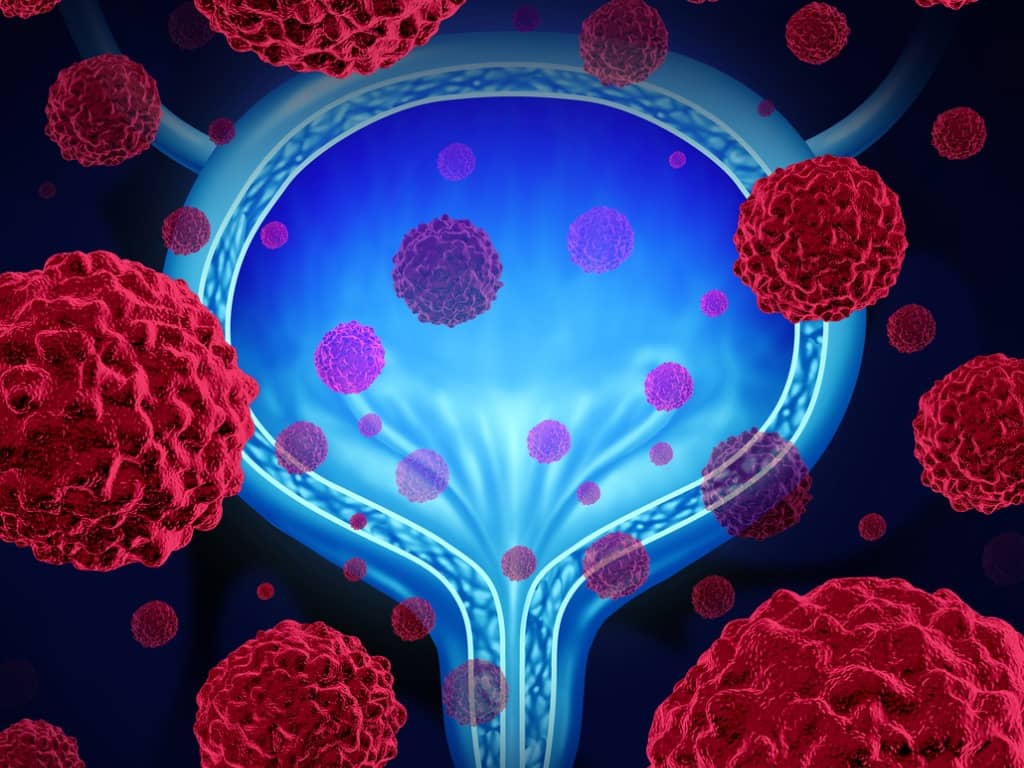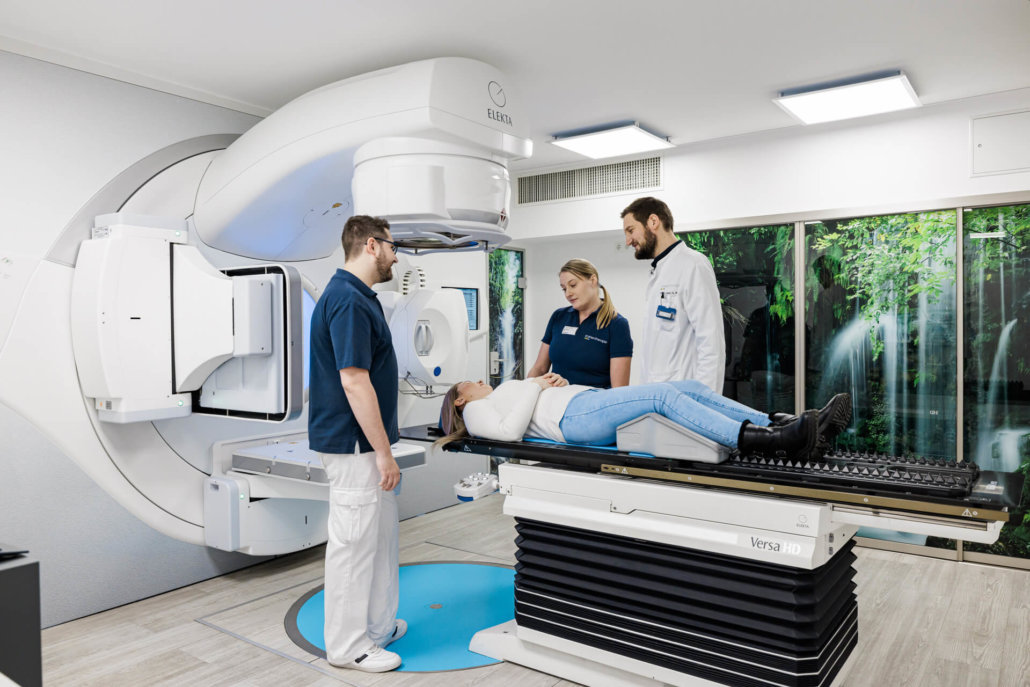Urinary bladder cancer
Urinary bladder cancer is more widespread, especially in men – one in 20 cancers is a urinary bladder carcinoma (surveys by the Robert Koch Institute). Chemotherapy treatment can be combined with supportive radiotherapy.
4 x
More new cases in men than in women
approx. 50 %
relative survival rate after five years
Smoking
Influences risk of disease
Source: “Cancer in Germany”, RKI/Krebsdaten.de
Where can you have bladder cancer treated in Munich?
We now offer the option of starting radiation therapy for urothelial carcinoma or metastases in the urinary bladder at three different locations. Select a practice and contact our specialists directly.

Urinary bladder cancer treatment
Urinary bladder cancer is one of the most commonly diagnosed cancers, especially in men. Due to its symptoms, it can be easily detected and treated at early stages. Together with the treating oncologists, our specialists create an individually tailored treatment plan to treat the tumor efficiently and promptly.
How is bladder cancer treated?
Urinary bladder cancer is divided into non-muscle-invasive or early bladder cancer and muscle-invasive or advanced bladder cancer. In the first case, the cancer grows superficially in the bladder mucosa; in the second case, the cancer grows into the bladder muscles. Depending on the diagnosis, a suitable therapy consisting of surgery, chemotherapy and/or radiotherapy is selected for the patient.
Chemotherapy
In the case of early bladder cancer and an intact bladder wall, instillation therapy can be performed after surgery in patients with a low to medium risk of recurrence. This involves flushing the bladder with a chemotherapeutic agent. The aim of this therapy is to minimize the risk of relapse. Patients with a high risk of relapse can receive immunotherapy. In this process, the tuberculosis vaccine BCG (Bacillus Calmette-Guérin) triggers a strong immune response and thus fights the cancer cells.
Muscle-invasive carcinomas of the urinary bladder may be treated with local chemotherapy (instillation or immunotherapy) before or after surgery. Here, too, the type and length of therapy depends on the risk of relapse with the aim of reducing it in order to prolong life.
Chemotherapy in combination with radiotherapy (radiochemotherapy) is also used when the cancer is no longer operable or the patient does not want an operation.
Radiotherapy
Radiation of bladder tumor is usually used in combination with chemotherapy because the cytostatic drugs used enhance the efficiency of X-rays in destroying cancer cells. Radiochemotherapy, in combination with TUR, may also be an alternative to bladder removal. The therapy results can be good, but the treatment is exhausting.
Radiation therapy uses high-energy beams. The goal is to damage cell growth in order to inhibit the spread of cancer cells in the body. In this way, the risk of relapse is also reduced.
What is the treatment process in our practices?
What do you need to pay attention to before, during and after therapy?
Please make sure you eat a healthy, balanced diet and drink enough water. A healthy nutritional status plays an important role in the treatment and spread of the tumor. It also helps reduce the side effects of radiation therapy.
Please refrain from smoking. Studies show that not smoking promotes wound healing and reduces the risk of recurrence.
Stay active! On the one hand, exercise and sport have a positive influence on cancer treatment and its consequences, as the patient can tolerate them better. On the other hand, physical exercise lowers the risk of relapse.
What are the side effects of radiation to the urinary bladder?
The treatment plan is individually tailored to the patient. Nevertheless, the consequences of radiation can be limiting and the therapy can be exhausting for the patient. The physical stress has an impact on many areas of the patient’s life.
Side effects such as an increased urge to urinate with difficulty urinating, diarrhea due to inflammation of the rectum, and bladder infections may occur. Treatment and therapy can also affect sexuality. Mood swings, fatigue and exhaustion are also seen.




